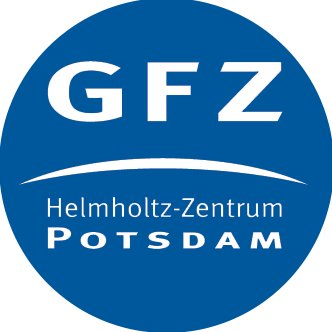RESEARCH PROJECTS BY DOMAIN

Alfred Wegener Institute - Helmholtz Centre for Polar and Marine Research (AWI)
Alfred Wegener Institute - Helmholtz Centre for Polar and Marine Research (AWI)
-
Arctic Environmental Data Analytics (Gregor Pfalz)
-
Facilitating Machine Learning on Super-High Resolution Earth Observation Data for Detecting and Quantifying Arctic Permafrost Thaw Dynamics (Tabea Rettelbach)
-
Data fusion using remote sensing data and machine/deep learning techniques to better understand present past and future vegetation dynamics in Central Yakutia (Femke van Geffen)
-
Quantifying and explaining uncertainty in modeling permafrost thaw under a warming climate (Brian Groenke)
-
Tracing 3-D high latitude environmental change with billions of remotely sensed points (Veronika Döpper)
Deutsches Elektronen-Synchrotron (DESY)
Deutsches Elektronen-Synchrotron (DESY)
-
An unsupervised census of astrophysical transients in the universe (Nicolas Miranda)
-
Dynamic Scheduling of Gamma-ray Source Observations (Hermann Stolte)
-
Context-awareness in real-time image classification for ground-based gamma-ray telescopes (Abhay Mehta)

German Aerospace Center (DLR)
German Aerospace Center (DLR)
-
Unravelling the Interior Evolution of Terrestrial Planets Through Machine Learning (Siddhant Agarwal)
-
On-board Image Classification based on Space-Based FPGA Processing (Olga Kondrateva)
-
Building a Photonic Processor for Energy-Efficient AI (Elizabeth Robertson)
-
Identification of Rock Falls in Mars Reconnaissance Orbiter Images Using Machine Learning (Oleksii Martynchuk)

German Research Centre for Geosciences (GFZ)
German Research Centre for Geosciences (GFZ)
- Online Learning and Decision Making for Real-Time Analytics of Synthetic Aperture Radar (SAR) Data (Binayak Ghosh)
- Enhanced Computational Approaches for Seismic Risk Assessment of Infrastructure Networks (Henning Lillienkamp)
- Earthquake rupture predictability and the limitations of early warning (Jannes Münchmeyer)
- Multi-satellite Approach of Monitoring Atmosphere/Magnetosphere Space Weather Interactions (Kevin Styp-Rekowski)
- Data Mining Dynamic Human Behaviors for Flood Risk Assessment in Coupled Human-Environment Systems (Nadja Veigel)
- Bayesian Machine Learning with Uncertainty Quantification for Detecting Weeds in Crop Lands from Low Altitude Remote Sensing (Ekin Celikkan)
- Predicting geomagnetic conditions on the Earth from multi-spectral images of the Sun by combining data science and physical models (Daniel Collin)

Helmholtz Zentrum Berlin für Materialien und Energie (HZB)
Helmholtz Zentrum Berlin für Materialien und Energie (HZB)
- Optimizing nanotextured solar cells for realistic weather conditions (Peter Tillmann)
- Data Analytics for Solar Energy Yield and Optimization Possibilities for Load Management of Electric Buses (Paolo Graniero)
- Machine Learning Meets Theoretical Chemistry: Data-driven Analysis of Grapheneoxide (Kanishka Singh)
- Data-Driven Time-Dependent Multiphysics Simulation and Optimization of Electron Solvation from Nanodiamonds (Thorren Kirschbaum)
- Explainable Artificial Intelligence and Trust in the Energy Sector (Christian Utama)
- Data-driven performance optimization of coloured and textured solar modules (Jonas Schaible)

Max-Delbrück Center for Molecular Medicine (MDC)
Max-Delbrück Center for Molecular Medicine (MDC)
- End-to-End Management of Experimental Data Science on Biomedical Molecular Data (Sergey Redyuk)
- Feature identification for single-cell omics data (Anna Vlot)
- Corpus-wide inference of gene relationships using semantic word representations (Leon Weber)
- Deep Learning with sparse annotations for the analysis of lung tissue microscopy images (Xiaoyan Yu)
- Identification of disease causing genetic variants by genome-wide predictions of human variant effects (Lusiné Nazaretyan)
- Multi-resolution models for single-cell genomics data (Viktoriia Huryn)
- Towards molecular digital pathology: leveraging spatial transcriptomics and deep learning to predict gene expression from tissue morphology in solid tumors (Daniel León Periñán)




